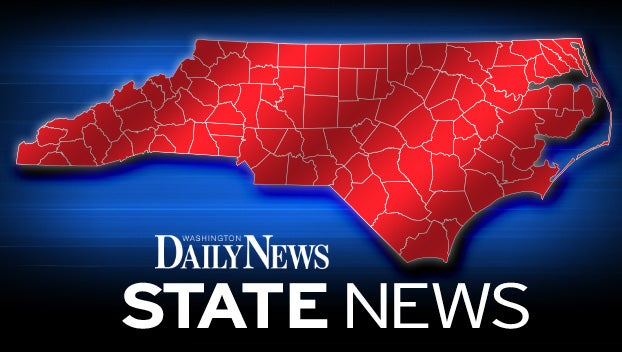Justices pepper lawyers in redistricting case
Published 4:15 pm Wednesday, February 2, 2022
|
Getting your Trinity Audio player ready...
|
RALEIGH (AP) — North Carolina Supreme Court justices and attorneys volleyed Wednesday over whether the court has authority to throw out new congressional and legislative districts simply because they comfortably favor Republicans in a state otherwise closely divided politically.
With oral arguments over, the justices will now decide whether redistricting plans approved by the GOP-controlled legislature in November for use this year through 2030 are gerrymanders so partisan that the North Carolina Constitution gives them power to strike them down.
Lawyers for voters and advocacy groups suing over the plans said yes, citing state constitution provisions protecting free elections and other freedoms of association and speech. But counterparts representing Republican legislative leaders argue justices should keep out and said having the courts decide when partisanship crosses the line is itself unconstitutional.
The court gave no indication after 90 minutes of arguments how they will rule or when. They’d have to act quickly should the justices want to keep on schedule the May 17 primary, already delayed once from March due to this litigation. The legislature would be given the chance to make adjustments the court demands.
All four registered Democrats on the seven-member court asked questions that suggested some willingness to intervene.
“Why shouldn’t our state constitution’s equal protection clause also protect people from discrimination — intentional discrimination — on the basis of party affiliation?” Associate Justice Anita Earls, a former redistricting and civil rights attorney, asked a Republican attorney. “Why isn’t that equally (an) equal protection violation that impacts a fundamental right — the right to vote?”
Following a trial last month, a panel of three trial judges ruled unanimously that while evidence showed the maps “are a result of intentional, pro-Republican partisan redistricting,” it wasn’t the judiciary’s place to interfere with mapmaking — the legislature’s job — when partisan fairness was challenged.
A different panel of trial judges reached an opposite outcome in 2019, declaring there was evidence that GOP legislators created extreme partisan gerrymanders when drawing previous U.S. House and legislative districts. The legislature redrew those maps, and the case never reached the state Supreme Court. The result of the latest case could set legal precedent for generations.
Mathematicians and electoral experts for the current plaintiffs cited map simulations to testify at trial that the new lines were likely to give the GOP 10 of the state’s 14 U.S. House seats as well as state House and Senate majorities in almost any political environment. In contrast, statewide elections over the past decade have been extremely close between the parties.
Republicans currently hold an 8-5 seat advantage in the U.S. House delegation, which is getting a 14th seat this year. A ruling could strengthen or weaken Republican attempts this fall to retake the House.
“The intent and effect is to predetermine the outcome of elections and entrench the majority party in power, regardless of how the people vote,” Stanton Jones, an attorney for voters backed by a national Democratic group, told the justices.
Phil Strach, a lawyer for the GOP legislative defendants, said the justices should keep to a hands-off approach, especially since otherwise the court would have to make policy judgments about what partisanship is allowed. A 2002 state Supreme Court ruling says some partisan considerations are permitted in mapmaking.
“There’s no basis … for this court to prefer Republicans and Democrats over other people and create a new right for them based solely on partisan preference, which changes all the time, including sometimes within the same election,” Strach said.
The combined lawsuits also allege racial discrimination because the maps were drawn to weaken the ability of Black voters to elect their favored candidates. Republicans have called their maps legal, pointing out they barred political and race-based data from mapmaking computers.
Chief Justice Paul Newby, a Republican and co-author of a book about the state constitution, questioned skeptically the plaintiffs’ attorneys about any workable standards a court could use to declare a map is fair based on partisanship. “Otherwise, we’re simply making it up,” Newby said.
Attorney Zach Schauf for the North Carolina League of Conservation Voters pleaded for the justices to rein in the General Assembly. The governor lacks veto power in redistricting and the public cannot on its own initiate constitutional amendments. “It will only get worse if this court gives the General Assembly a blank check,” he said.
Strach, meanwhile, cited a news article in suggesting the public’s perception of the court is taking a hit with the possibility that they could throw out the map. Earls took issue, asking Strach wasn’t it the court’s obligation to rule on the constitution, “whatever the public may or may not think about that.”






